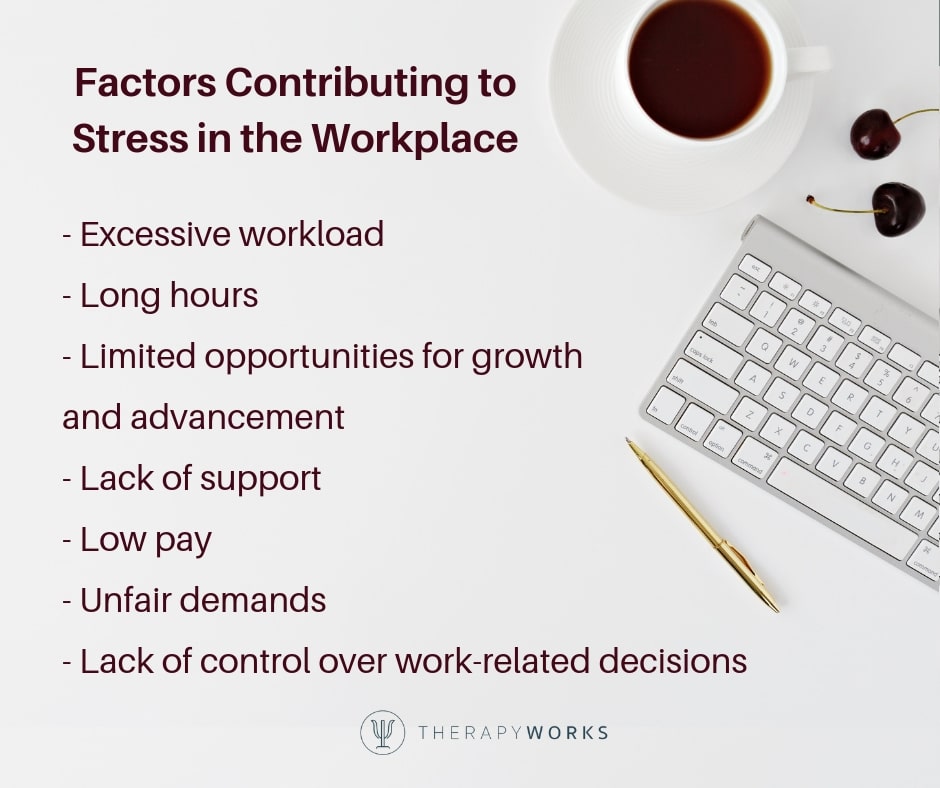 Last week I spoke to someone who experiences considerable stress in various areas of her life. Whilst we chatted she shared with me an interesting dream in which she recalled standing in a public bathroom in front of a huge mirror, whilst behind her sat a number of important people in her life. These included her parents, partner, and a few friends. As each of them tried desperately to provide her with a solution to her latest stressor, she suddenly caught a glimpse of her reflection in the mirror and saw that her previously thick, long, dark hair was gone and replaced by wisps of thinning, short hair. In fear and shock, she turned to her loved ones and said ‘I don’t care about that problem anymore, and not because I’m finally able to handle things better but because I’ve just seen my hair’. In that moment nothing she was stressing about compared to having lost her hair, which in the dream she was aware was due to her stress.
Last week I spoke to someone who experiences considerable stress in various areas of her life. Whilst we chatted she shared with me an interesting dream in which she recalled standing in a public bathroom in front of a huge mirror, whilst behind her sat a number of important people in her life. These included her parents, partner, and a few friends. As each of them tried desperately to provide her with a solution to her latest stressor, she suddenly caught a glimpse of her reflection in the mirror and saw that her previously thick, long, dark hair was gone and replaced by wisps of thinning, short hair. In fear and shock, she turned to her loved ones and said ‘I don’t care about that problem anymore, and not because I’m finally able to handle things better but because I’ve just seen my hair’. In that moment nothing she was stressing about compared to having lost her hair, which in the dream she was aware was due to her stress.
Although quite extreme, for this young woman the dream was a ‘wake-up call’ telling her to slow down and see what changes she needs to make to her lifestyle. As a therapist reflecting on this dream, I’m aware that exploring the dream may bring up a number of different underlying issues. However, at the same time, for me it represents the very nature of stress in that we are often so busy trying to cope with our never-ending to-do lists and the ensuing anxiety, that we don’t realise the impact of stress on our health and well-being until something shocks us into action.
Stress is a term most of us are familiar with, especially when linked to our working lives. Whilst we all experience stress in different ways, the term no doubt conjures up unpleasant, negative thoughts and feelings for most of us. Stress in the workplace is so pervasive that statistics carried out in the UK by the Mental Health Foundation found that 12.5 million working days were lost between 2016 and 2017 due to work-related stress, depression and anxiety. 74% of adults in the UK claimed to have felt so stressed at some point in 2017 that they were overwhelmed and unable to cope. 32% said that stress triggered suicidal feelings, whilst 40% reported regularly losing sleep due to work-related worries.
So, what is stress exactly? Stress occurs when the pressures and demands placed on us exceed our perceived ability to cope. Whilst a bit of stress can be useful since it can alert us to things in life which we wish to change or push us to action to achieve our goals, too much stress can be crippling. Stress can cause reduced job satisfaction, decreased productivity and performance, social withdrawal, anxiety, sleep disturbances, stomach complaints and severe headaches. When chronic, stress can contribute to depression, heart disease, insomnia, damaged relationships, extreme anxiety and burnout.

With increased flexibility in the workplace, we now can enjoy various benefits. This includes increased control over how and when we work, therefore helping us balance our personal, family and work commitments. However, the less attractive cost of this increased flexibility is the difficulty in separating our work and personal lives. This has been exacerbated by increased digital connectivity, with emails and phone messages often interrupting us at all times of the day, regardless of whether we are working or not. Inevitably, we are often left feeling unable to switch off and, whilst we may be at home relaxing or out with friends, one message or work-related email can throw us off kilter, distracting us from the very quality time and balance we were seeking in the first place.
Whilst I’d recommend everyone, myself included, to reduce the endless to-do lists, work less and slow down our pace of life in general, I realise that this is not always possible and can take time to achieve. In the meantime, however, there are many things we can do to help manage our stress levels:
- Track your stressors
Take the time to notice what it is which really upsets you or causes you anxiety. Is it your colleagues not pulling their weight, the feeling of being overlooked by management, constant interruptions by your colleagues? Grab a notebook or use an App to jot down how you’re feeling at various times throughout the day, with particular emphasis on the incidents which made you angry or upset. Slowly you’ll start to notice patterns or common themes emerging. It’s only when you identify the cause, or causes, that you can do something about it.
- Establish boundaries when not in the workplace
Place limitations on what you do, and when. This may mean limiting the time you spend checking work emails when at home to specific times of the day (e.g. no emails after 6pm). If you can, have a separate work phone and switch it off or place on silent mode at times when you don’t wish to be interrupted. See what other limitations you can introduce so as to reduce your stress and anxiety.
- Talk to your boss
If there are certain work conditions which are causing you excessive stress, speak to your boss or Human Resources manager about these. For instance, if your workload is too large in relation to your working hours, speak to your boss about ways this work can be shared amongst co-workers. If you feel uncertain about your role and what’s expected of you, ask to clarify your job description. Explore ways your place of work can support you to do your
work effectively and manage your stress levels.
- Decrease your intake of caffeine
When we’re tired or feeling low, we may be tempted to reach out for things which can give us a kick, some relief or immediate pleasure. However, caffeine is a stimulant which can actually increase anxiety, often stimulating your ‘fight or flight’ response. Not only can too much caffeine cause you to feel nervous, jittery and irritable, it can affect your ability to get a good night’s sleep, only adding to your woes. There’s no need to cut out coffee/tea entirely. However, replace the ‘extra’ cups with herbal tea or decaf tea or coffee and drink plenty of water.
- Learn to say ‘No’
You may irk a few people, but saying ‘no’ to tasks which you have no time for can be an important step in taking care of yourself. Declining an additional responsibility or new task may not be easy for those of us who pride ourselves on being efficient, hard-working and valuable team members. However, the reality is that we can still be efficient, hard-working and valuable individuals without jeopardising our sanity and well-being. Throw off that superwoman/man cape and be realistic about what you have time for and what you don’t. Not only will you perform more effectively but you will also be happier and healthier in the long-run.
- Explore what helps you work more effectively
 If working in a noisy, open-plan office with plenty of space for interruptions causes you stress and anxiety, see if you can explore options which work better for you. For instance, can you spend 2 hours a day working from home or is there a quiet desk you can work at when you need to be more focused? Don’t be scared to think of different alternatives and ask management to consider these.
If working in a noisy, open-plan office with plenty of space for interruptions causes you stress and anxiety, see if you can explore options which work better for you. For instance, can you spend 2 hours a day working from home or is there a quiet desk you can work at when you need to be more focused? Don’t be scared to think of different alternatives and ask management to consider these.
- Develop healthy habits
Experiment with different activities to combat stress and lead a healthier lifestyle. For instance, take long walks, go for a run before work, join a gym, give yoga a try or start meditation in a group or on your own at home. Exercise is known to lift mood, increase energy levels and promote a healthier mind and body, whilst yoga and meditation can help restore inner balance and cultivate skills and techniques which can be adapted in different situations to reduce stress levels. For instance, the deep breathing techniques used whilst meditating can be adopted when in a stressful meeting or when feeling overwhelmed by
work tasks.
- Take the time to re-charge
Whilst you may feel you don’t have the time for a coffee or lunch-break, taking time away from the office can actually increase productivity and help you manage your stress and anxiety levels. At various points during the day, leave your desk and go for a short walk. Grab a colleague and have lunch at a nearby cafe. Do whatever it takes to switch off from work, share any difficulties you may be experiencing and simply have a laugh and a joke. When you leave work, make the choice to actually ‘leave work’. Make a conscious choice to stop working or thinking about your inbox or ‘to-do lists’ and leave them for the next day so you can focus on other aspects of your life. Do something you enjoy after work, such as meeting a friend, having dinner at home with your partner or watching your favourite series. Most importantly, learn to switch off.
- Seek support
There are varying levels of support we can all make use of to decrease our stress and take care of ourselves. Is there a colleague you feel comfortable with who you can talk to about the difficulties you’re facing at work? Sharing even the small irritations can help us feel understood and relieve stress, particularly if your colleague is going through the same difficulties. Reach out to a friend or family member if you’re struggling with stress or anxiety. Whilst they may not be able to solve your problem, being heard and feeling the support of a loved one can ease feelings of tension, isolation and anxiety.
If you feel you need guidance and support to deal with the difficulties you’re facing in the workplace and your ability to manage stress levels, seek professional help. Therapy can be a safe space to explore your current experience and develop new and healthier coping mechanisms. It can also give you the tools to recognise and change behaviour which tends to add to your stress levels (e.g. perfectionism, people-pleasing etc). This will not only benefit you in the workplace but in all aspects of your life.






